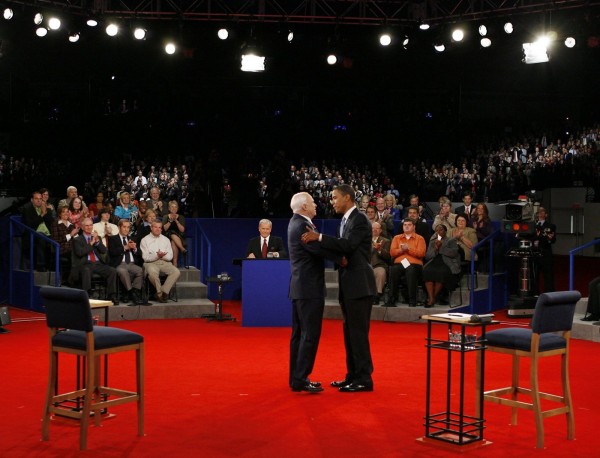Gary Johnson Calls for Constitutionally Sound Presidential Debate Process


Libertarian presidential candidate Gary Johnson has written an open letter to the so-called Commission on Presidential Debates urging the organization to include all qualified candidates in the series of presidential debates that will be held this fall. Johnson argues that by limiting participation in the debates to the candidates of the Democratic and Republican parties, the CPD process does not reflect the reality of the U.S. electorate today and unfairly limits the choices of voters, over a third of whom refuse to identify with any party whatsoever. Johnson writes:
You rely very heavily on polling data to determine who may participate in your debates, yet your use of criteria that are clearly designed to limit participation to the Republican and the Democrat nominee ignore the fact that many credible polls indicate that a full one-third of the electorate do not clearly identify with either of those parties. Rather, they are independents whose voting choices are not determined by party affiliation.
The letter calls on the Commission to reconsider its exclusionary policies and institute a constitutional standard for participation in the presidential debate process.
Currently, to be included in its debates, the Commission requires that a given candidate must 1) be constitutionally eligible to hold the office of president, 2) have ballot access in enough states to theoretically obtain an Electoral College majority (270 Electoral College votes), and 3) demonstrate at least 15% support in a series of national polls. It is with this last requirement that Johnson takes issue. Unlike the first two requirements, there is no constitutional basis for this rule. Johnson writes:
Unlike your other requirements, this polling performance criterion is entirely arbitrary and based, frankly, on nothing other than an apparent attempt to limit participation to the Democrat and the Republican.
He then goes on to point out how this requirement serves to limit voter choice through the collusion of the parties, their funders and the mainstream media. Johnson continues:
Requiring a certain level of approval in the polls has nothing to do with fitness to serve, experience, or credibility as a potential President. Rather, it has everything to do with the hundreds of millions of dollars available to and spent by the two major party candidates, the self-fulfilling bias of the news media against the viability of third party candidates, and an ill-founded belief that past dominance of the Republican and Democrat Parties should somehow be a template for the future.
Many Americans are likely unaware of the fact that the Commission on Presidential Debates is nothing more than a front organization for the Republican and Democratic Party National Committees. The commission feigns non-partisanship in the guise of bipartisanship. Johnson argues that the CPD improperly narrows voter choice and unfairly excludes all candidates other than those of the Democratic and Republican parties from its process. He writes:
In all due respect, it is not the proper role of an nonelected, private and tax-exempt organization to narrow the voters’ choices to only the two major party candidates – which is the net effect of your arbitrary polling requirement. To the contrary, debates are the one element of modern campaigns and elections that should be immune to unfair advantages based upon funding and party structure. Yet, it is clear that the Commission’s criteria have both the intent and the effect of limiting voters’ choices to the candidates of the two major parties who, in fact, created the Commission in the first place.
Johnson thus calls for the elimination of the polling requirement to ensure a fair presidential debate process.
Eliminating the arbitrary polling requirement would align the Commission and its procedure for deciding who may participate in the critical debates with fairness and true nonpartisanship, which was the purported intent behind the Commission’s creation.
If the polling requirement were removed, Johnson would be included in the debates. In all likelihood, so would Green Party presidential candidate Jill Stein. Why are the Democratic and Republican parties so afraid of a real debate?


